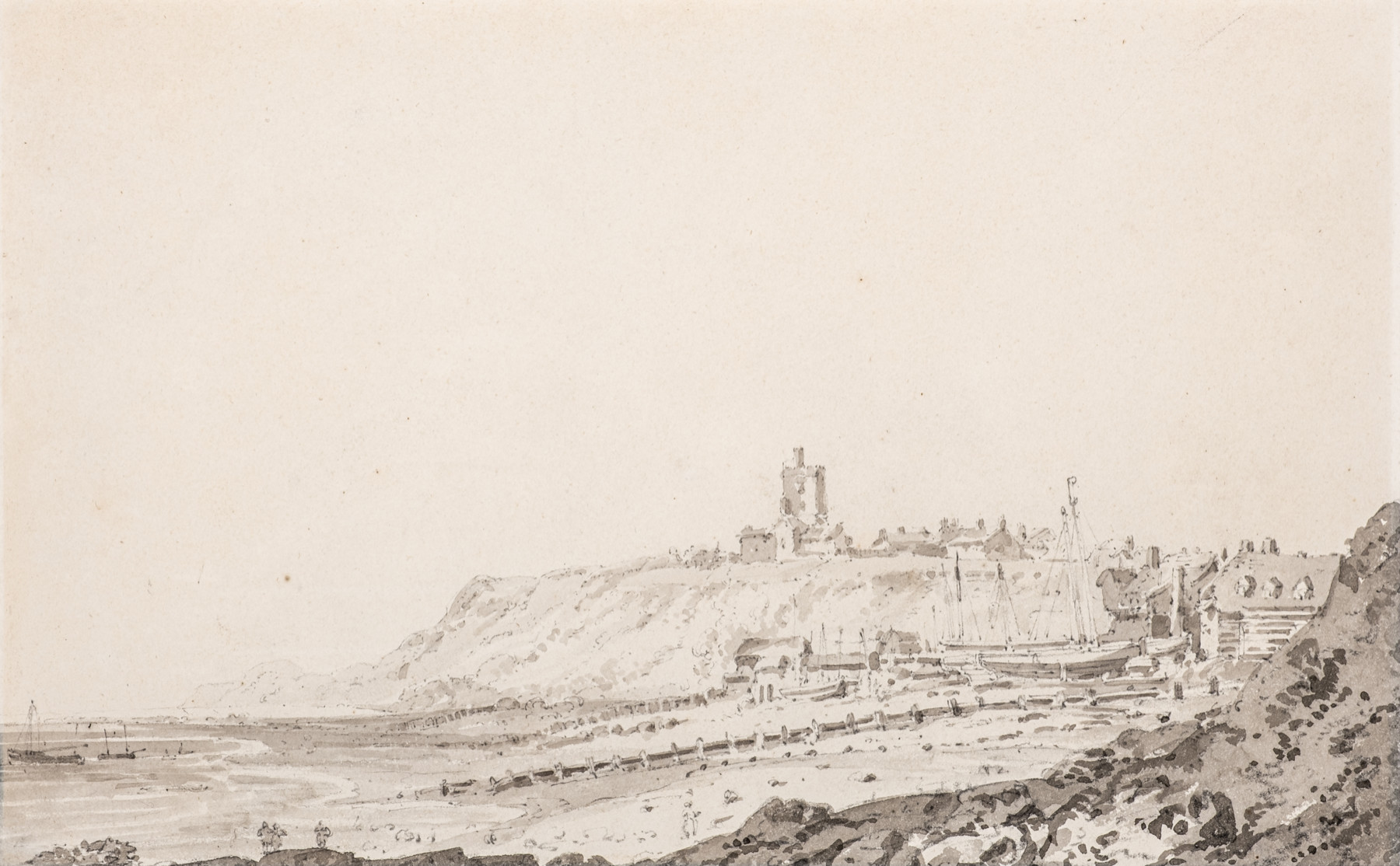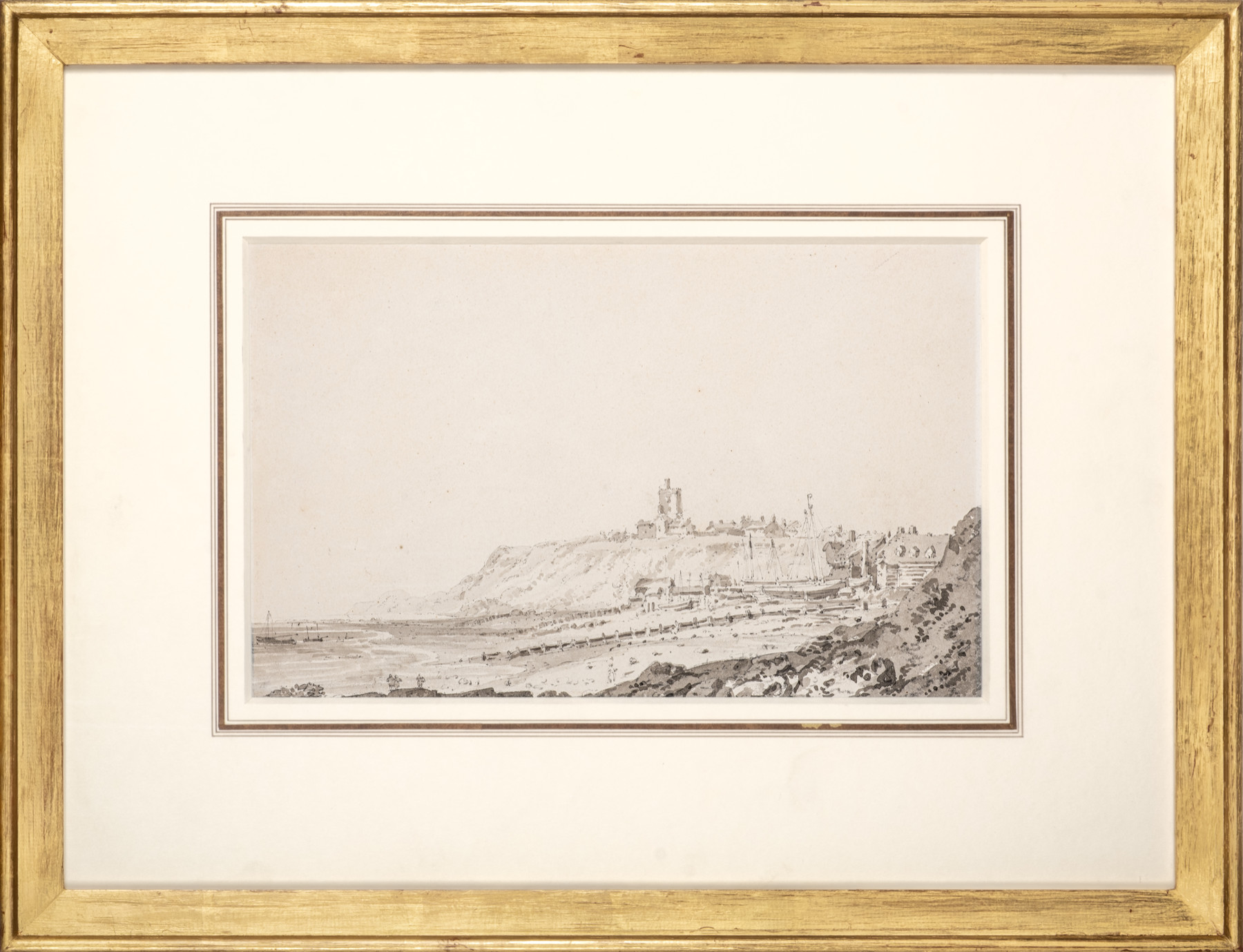

This drawing of Folkestone Harbour is the product of a remarkable collaboration between Thomas Girtin (1775-1802) and Joseph Mallord William Turner (1775-1851), embarked upon when both artists were still teenagers. Girtin and Turner were employed by Dr Thomas Monro (1759-1833), art patron and Principal Physician of Bethlem since 1792, to copy the rough and unfinished drawings of the artists John Robert Cozens (1752-1797), Edward Dayes (1763-1804) and John Henderson (1764-1843), depicting coastal scenery and shipping on the south coast of England. The joint ownership of these drawings is suggested by the artist Joseph Farington (1747-1821), who recorded details of the undertaking in his diaries. He records that Henderson lent his ‘outlines for this purpose’ (Farington, Diary, 30 December 1794) and that ‘Girtin drew in outlines and Turner washed in the effects’, with Turner receiving ‘3s.6d each night’ though ‘Girtin did not say what He had’ (Farington, Diary, 12 November 1798).
The present artwork is the only view of Folkestone that has so far been identified from the ‘Twenty-Six sketches at Dover and Folkestone, in blue and Indian ink’ that were sold at Dr Monro’s posthumous sale, possibly at Christie’s, in 1833. Though majority of the drawings sold in this 1833 sale were attributed to Turner alone, a pioneering article in 1984 by the Turner scholar, Andrew Wilton, established the joint ownership of many of the drawings (Wilton, pages 8-23).
Further Reading:
Kenneth Garlick, Angus Macintyre, Kathryn Cave and Evelyn Newby, [eds], The Diary of Joseph Farington, 17 vols, New Haven, CT and London: Paul Mellon Centre for Studies in British Art, 1978–98; Greg Smith, thomasgirtin.com, part of the Paul Mellon Centre for Studies in British Art;
Andrew Wilton, ‘The “Monro School” Question: Some Answers’, Turner Studies, vol 4, no 2, Winter 1984, pages 8-23